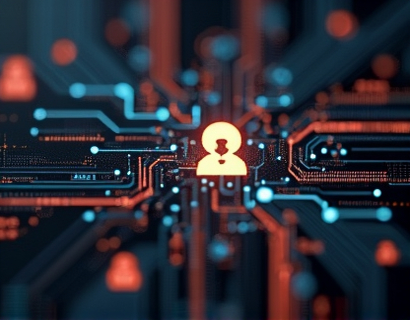AI-Powered Online Safety Solutions: Expert Guidance for Secure Digital Exploration
In an era where the digital landscape is expanding rapidly, ensuring online safety has become a paramount concern for tech-savvy individuals. The internet offers unparalleled opportunities for communication, learning, and entertainment, but it also presents significant risks. From cyber threats and data breaches to identity theft and malicious software, the dangers are real and evolving. This is where AI-powered online safety solutions come into play, providing expert guidance and advanced tools to navigate the digital world with confidence and security.
Understanding the Importance of Online Safety
Online safety is not just about protecting personal information; it encompasses a wide range of concerns. It involves safeguarding against unauthorized access to devices and accounts, preventing the spread of malware and viruses, and ensuring the privacy of sensitive data. For individuals who spend a significant amount of time online, these risks can have serious consequences, affecting not only personal life but also professional endeavors. AI-powered solutions offer a proactive approach to mitigating these risks, leveraging advanced algorithms and machine learning to detect and prevent potential threats.
How AI Enhances Online Safety
Artificial Intelligence (AI) brings a level of sophistication and adaptability to online safety that traditional methods cannot match. AI systems can analyze vast amounts of data in real-time, identifying patterns and anomalies that indicate potential threats. This capability is crucial in detecting phishing attempts, recognizing suspicious activities, and predicting emerging threats before they become widespread. Moreover, AI can learn from past incidents, continuously improving its ability to protect users against new and evolving dangers.
Real-Time Threat Detection
One of the key advantages of AI in online safety is its ability to perform real-time threat detection. Traditional security measures often rely on predefined rules and signatures, which can be ineffective against unknown or rapidly changing threats. AI, on the other hand, uses machine learning to recognize and respond to threats as they occur. For instance, AI-driven security solutions can monitor network traffic, email communications, and user behavior to identify and block malicious activities instantly. This proactive approach significantly reduces the risk of successful cyber attacks.
Behavioral Analysis
AI-powered systems can also perform behavioral analysis to detect unusual activities that may indicate a security breach. By establishing a baseline of normal user behavior, these systems can flag any deviations that could signal a compromise. For example, if a user suddenly accesses sensitive data from an unfamiliar location or at an unusual time, the AI can trigger alerts and take preventive actions. This level of granular monitoring is essential for detecting insider threats and unauthorized access attempts.
Expert AI Strategies for Online Safety
Implementing AI-powered online safety solutions requires a strategic approach. Here are some expert strategies to ensure a secure and confident digital experience:
1. Multi-Layered Security Approach
A multi-layered security strategy is essential in today's complex threat landscape. This approach involves using a combination of security tools and practices, each designed to address specific vulnerabilities. AI can play a crucial role in coordinating these layers, ensuring that they work seamlessly together. For example, AI can integrate firewall protections, antivirus software, and intrusion detection systems to create a robust defense mechanism. By automating the coordination between these layers, AI reduces the risk of human error and enhances overall security.
2. Continuous Monitoring and Updates
Cyber threats are constantly evolving, making it imperative to continuously monitor and update security measures. AI-powered solutions can automate this process, providing real-time monitoring and automatic updates to protect against the latest threats. Regular updates ensure that security protocols remain effective, even as new vulnerabilities are discovered. Additionally, AI can analyze logs and alerts to identify patterns and suggest improvements, helping to refine the security strategy over time.
3. User Education and Awareness
While technology plays a critical role in online safety, human factors cannot be overlooked. Educating users about best practices and potential risks is a fundamental aspect of a comprehensive security strategy. AI can assist in this area by providing personalized recommendations and alerts based on user behavior. For instance, if an AI system detects that a user is accessing suspicious websites, it can send a warning and offer guidance on how to proceed safely. This combination of technology and education empowers users to make informed decisions and adopt safer online habits.
4. Customized Security Profiles
Not all users have the same level of technical expertise or face the same types of threats. AI can help create customized security profiles tailored to individual needs. By analyzing user behavior, device usage, and specific risk factors, AI can recommend appropriate security settings and tools. For example, a business user might require more robust protections for corporate data, while a home user might need enhanced protection against home network intrusions. Customized profiles ensure that each user receives the right level of security without unnecessary complexity.
Resources for AI-Driven Online Safety
For those seeking to enhance their online safety with AI-powered tools, a variety of resources are available. Here are some key platforms and tools that leverage AI to provide expert guidance and advanced protection:
1. AI-Powered Security Software
Numerous security software solutions incorporate AI to offer advanced protection. These tools use machine learning algorithms to detect and block malware, phishing attempts, and other threats. Some popular options include:
- Norton Smart Protection Network
- Bitdefender AI Security
- Kaspersky Total Security
These solutions not only protect against known threats but also adapt to new risks in real-time, providing a dynamic layer of security.
2. Online Safety Platforms
Several online platforms focus specifically on providing AI-driven safety guidance and tools. These platforms offer a range of services, from real-time threat detection to educational resources. Some notable examples include:
- CyberSafe AI
- SafeBrowsing
- Web of Trust
These platforms use AI to analyze web traffic, identify potential dangers, and provide users with actionable insights and recommendations.
3. Educational Resources
Educating oneself about online safety is crucial, and there are many resources available that leverage AI to provide informative content. Websites and blogs dedicated to digital security often use AI to curate and present information in an accessible manner. Some recommended resources include:
- Cybersecurity and Infrastructure Security Agency (CISA) - Offers guides and alerts powered by AI to help users stay informed about the latest threats.
- StaySafeOnline
- TechSavvySecurity
These resources use AI to analyze user queries and provide tailored advice, ensuring that individuals receive the most relevant and up-to-date information.
Conclusion
In an increasingly digital world, AI-powered online safety solutions are indispensable tools for tech-savvy individuals seeking to navigate the internet securely. By leveraging advanced AI strategies and resources, users can protect themselves against a wide range of threats, from malware and phishing to identity theft and data breaches. The combination of real-time threat detection, behavioral analysis, continuous monitoring, and user education creates a comprehensive safety net that enhances both security and confidence. As AI technology continues to evolve, the potential for even more effective online safety solutions is vast, ensuring that the digital world remains a safe and enjoyable place for everyone.










































